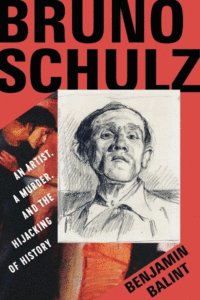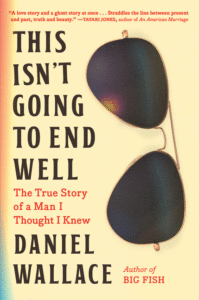
Izumi Suzuki’s Hit Parade of Tears, Mark Bowden’s Life Sentence, and Molly Prentiss’ Old Flame all feature among the best reviewed books of the week.

1. Old Flame by Molly Prentiss
(Gallery/Scout Press)
4 Rave • 1 Mixed
“Though sprinkled with references to poetry and the vagaries of capitalism, this [first] portion of the novel feels as if it may be headed into rom-com territory…But Prentiss has something less predictable in mind. We soon embark on a quest narrative where Emily’s desire for the maternal love she never felt, even with a devoted adoptive mother, is bottomless … Old Flame is that rare novel whose author—as well as her protagonist—gains wisdom and authority as the story unfolds, never failing to remind us that while loss and grief are inescapable, joy and fulfillment are possible.”
–Leigh Haber (The New York Times Book Review)

2. I Could Live Here Forever by Hanna Halperin
(Viking)
1 Rave • 5 Positive • 1 Mixed
Read an essay by Hanna Halperin here
“Compelling … Convincing … It’s a credit to Halperin’s craft that despite the plot’s true-to-life repetitiveness, the reader is mesmerized by Leah’s stubborn refusal to recognize Charlie’s demons, or her own … A wrenching story that’s been lived and told before. Halperin does us a service by sharing her version of it, entertaining, warning and educating us with her all-too-accurate novel.”
–Meredith Maran (The Washington Post)

3. Hit Parade of Tears by Izumi Suzuki
(Verso)
2 Rave • 3 Positive
Read an excerpt from Hit Parade of Tears here
“An enjoyably acidic and darkly funny set of stories in which the novelty is not always so much in the ideas as in the consistently engaging execution. Suzuki’s distinctly misanthropic voice enlivens these narratives of women whose mundane lives are altered—sometimes humorously, sometimes catastrophically—by science-fictional or supernatural occurrences … If the story feels bloated, Suzuki and the translator (David Boyd, in this instance) nevertheless capture the strange beauty of the language of fannish subcultures, precise and deeply knowledgeable, impenetrable to the uninitiated but attractive enough to sometimes snare the curious … Though cynicism pervades this collection, it isn’t absolute.”
–Dexter Palmer (The Washington Post)
**

1. Bruno Schulz: An Artist, a Murder, and the Hijacking of History by Benjamin Balint
(W. W. Norton & Company)
4 Rave • 1 Positive • 1 Mixed
“Tells [a] story — which turns out to be multiple stories, obscured by the fog of war and rumor’s sfumato — and virtuosically relates them to Schulz’s own tales, while providing the clearest, most evenhanded account to date of the tangled afterlife of the Master of Drohobych … An unflaggingly curious and fastidious critic, the Jerusalem-based Balint has forged a career out of examining cases like this one … In that book as in this one, Balint excels at distinguishing the possible ownership of artifacts from the impossible ownership of legacies, and demonstrates with sensitivity how in the clash between so-called intellectual property rights and so-called moral rights, the only sure loser is the artist himself, especially if he is no longer around to defend (or define) himself.”
–Joshua Cohen (The New York Times Book Review)
2. Life Sentence: The Brief and Tragic Career of Baltimore’s Deadliest Gang Leader by Mark Bowden
(Atlantic Monthly Press)
4 Rave • 1 Positive
“Bowden…is well placed to tell the story … The issue of racism burns through every part of this book—in policing, media coverage, political disinterest. Familiar and depressing. Bowden excels in relentlessness, illustrating the constructed divides … Bowden seeks to offer explanations, not excuses … Life Sentence goes deep, putting the microscope on the investigation, the evidence-gathering, and the informants involved. Wiretaps provide real-time, firsthand commentary of killers hunting victims, a sense of being there accurate enough to be unsettling … A deftly written examination of how Montana Barronette came to be, and then came to be caught, a stark reminder that lasting change is dependent on long-term political commitment. Hardly a reason for optimism.”
–Malcolm Mackay (AirMail)

3. This Isn’t Going to End Well: The True Story of a Man I Thought I Knew by Daniel Wallace
(Algonquin)
2 Rave • 3 Positive
“A eulogy, a cautionary tale, a love letter and a sob of anger … It revolves around the suicide of a man Wallace loved and held in awe, yet it scrupulously avoids the crevasse of guilt that bedevils—and stalls—many similar stories … In this memoir, his writing can be repetitive. His descriptions of growing up in Birmingham, Ala., and struggling to become a writer are oddly generic. But by the end of this well-told story we understand the trap Nealy set for himself: He could no longer hide his pain, yet he could not live with it being seen.”
–Michael Greenberg (The New York Times Book Review)

